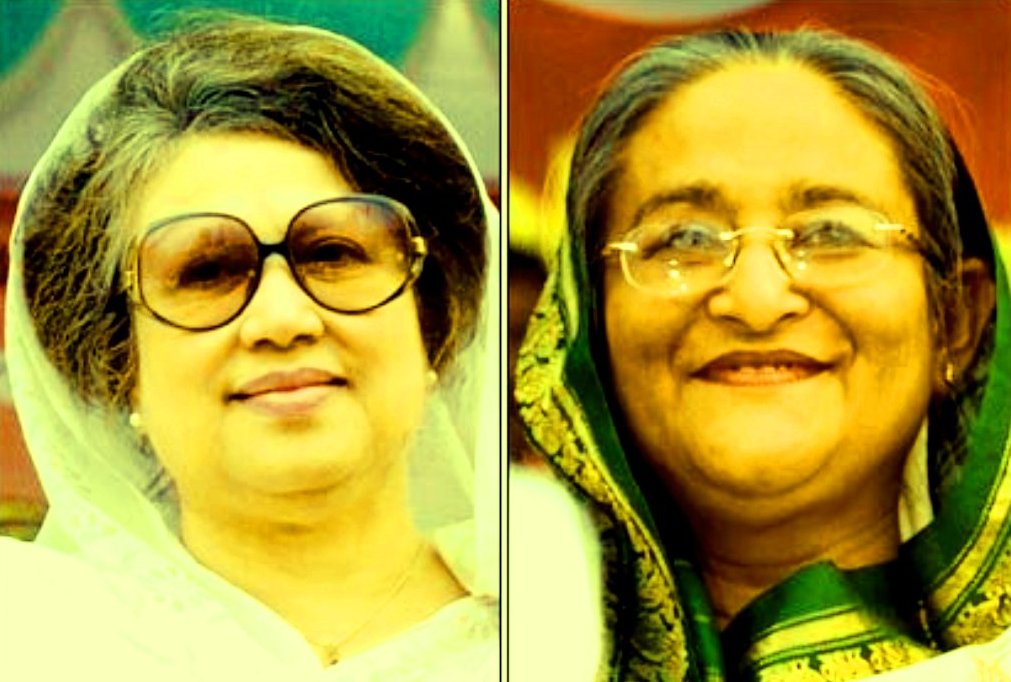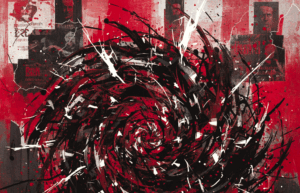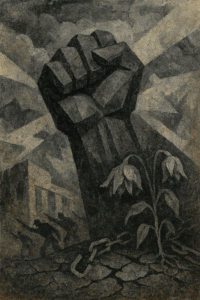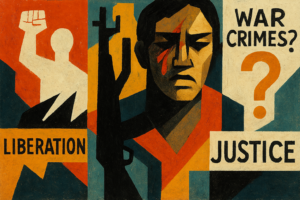
This post has already been read 48 times!
In its evolving trajectory, Bangladesh politics has reached an interesting phase in the last two decades. Regardless of which party comes to power, there is no fundamental difference in their linguistic expression of politics. If the current ruling grand alliance led by the Awami League is vehemently hostile to the demand of the opposition to hold the next parliamentary election under a neutral caretaker government, it is important to remember that the opposition had done the same while it had been in power, 1991-1996.
The then ruling party, the Bangladesh Nationalist Party, had even held a parliamentary ‘election’ in the absence of the main opposition which had ultimately led to its downfall and to the institutionalisation of the caretaker government system. Over the years, the ruling parties (whether in position or opposition) have developed a habit of explaining everything in terms of a framework of ‘conspiracy’ whenever any popular demand arises, which does not tally with the political aspirations of the former. Their domination of state machineries appears to make them apathetic to issues such as, the rise in prices of everyday commodities, the deteriorating law and order situation, freedom of association, etc. In this context, it seems to me that a cycle has emerged, which is well-captured through what I term the RPASDA syndrome: Ruling Parties Act Similarly Defying All. This cycle of RPASDA syndrome now rules all spheres of national life involving issues ranging from a staggering increase in the number of transport accidents, extrajudicial killings to the construction of the Tipaimukh Dam by India.
The opposition parties are also entrapped in the cycle of RPASDA syndrome, though they suffer from it in a slightly different manner. Not being in the government, they enjoy the liberty of relying on street agitations by using their network of party supporters to gain political ground. In doing so, they also demonstrate an approach of defying certain parliamentary democratic norms like participating regularly in the parliamentary sessions, forming a shadow government, etc. They are not in the slightest bit embarrassment even when they observe strike for 173 days or join parliament for a brief period of time only to save their ‘parliamentary’ power and the facilities that they enjoy as parliament members. Now the question that faces us, and which I want to engage with, is why have these syndromes of defiance and RPASDA emerged in Bangladesh politics even after political parties have been able to ‘institutionalise’ parliamentary democracy at least in the form of ‘electoral democracy’? Secondly, what are its implications for the body politic?
To seek answers, I highlight a particular politico-economic aspect of Bangladesh , although there may well be other reasons. I contend that it is the emergence of hitherto peripheral Bangladesh as a ‘neo-liberal’ state in the 1990s in the context of the end of the Cold War creating a hype of ‘geo-economics’ to replace ‘geo-politics’ in the global political economy. This ‘neo-liberal’ state is driven more by the market logic of ‘cost-benefit’ rather than by the political ideology of parity and justice resulting more in the tendency of the policymakers to ‘privatise’ everything from education to telecommunication. In this sense, this ‘neo-liberalism’ is more than the ‘liberalisation’ of goods and services as occurs in capitalism, in the traditional sense.
With the emergence of this ‘neo-liberal’ Bangladesh, ideological differences between the dominant political parties which had hitherto existed, at least, in terms of their economic philosophy, have evaporated over the last two decades. As a result, the political parties after coming to power, continue with the process of speedy ‘privatisation’ which has, in practical terms, culminated in the rampant commodification of everything at the insistence of the institutional and bilateral donors. This ‘privatisation’ policy has opened up a new space for the ruling political elites to give out economic benefits to those who are able to get into the network of patronage which has evolved over the last four decades.
Not only so, the economic logic of cost-benefit, devoid of any political norms of justice and parity, encourages the parties to pick only the ‘rich’ and locally ‘influentials’ who have enough money to spend, and muscle power to prevail, during the elections. Consequently, in order to ensure their own political and electoral survival, the political parties increasingly prefer businessmen. Fifty-nine per cent of members of the current parliament are now businessmen in terms of their professional identity; this, however, does not include those who belong to various broker groups and manoeuvre their ‘parliamentary’ power to mediate in business deals. Against this parliamentary backdrop, when parties come to power, they do not worry exceedingly over using either their authority to legalise the monopoly of the telecommunication sector by a single company or in giving immunity to the power sector probably with the aim of distributing power plants among the ruling party leaders. Every time a new party/alliance comes to power, a group of new business faces emerge who become owners of new industries, banks, private universities and what not.
This state of parliamentary ‘democracy’ is now no different from what had occurred during the autocratic Ershad regime. The trend of government patronisation of business had reached its highest stage when general Ershad had assumed personal authority of sanctioning development and financial projects which had previously required a review of the Planning Commission and the Ministry of Finance before getting final official approval. While, in the first two decades, the ruling parties had been able to establish their control over certain sections of the business community and their supporters through a system of personal patronage, the dawn of ‘parliamentary democracy’ in 1991 has turned the system into one of ‘party patronage’.
It is no longer surprising that members of the parliament hug each other when their salary is increased, when tax-free expensive cars are provided, even though the conflictual relationship as ‘apparent’ between the ruling and the opposition parties would not have given such an impression. Not only so, persons who are brave enough to investigate share scams and to identify the wrongdoers, are turned into controversial figures, cases are filed against them, while those who are the wrongdoers are offered lucrative posts or made ‘commercial’ advisers to the government. All these symptoms of the mainstream political parties seem to indicate that they are very much ‘anti-politic’ when the question of resource (mal)distribution occurs. The constant manifestation of this ‘anti-politic’ attitude keeps the ‘non-beneficiaries‘ of their party patronage system at bay. Influenced by the market logic of cost-benefit, the two major rival parties do not hesitate either to forge alliances either with the ‘rajakar’ (war criminals) Jamaat-e-Islami, or with ‘shoirachar’ (autocratic) Jatiya Party in order to prevail over electoral politics.
In reaction to this political economy setting, the ‘non-beneficiary’ category of the polity is faced with only option: revolting against the system of party patronage of the ruling parties, scoped through casting ballots against the ruling party/alliance in the national elections held under the system of neutral caretaker government. This practice of ‘reactive’ vote-casting generates fear among the ruling parties of losing the elections if it is held under a neutral caretaker government. As a result, the ruling parties, both of them equally, find it suitable to defy the demand of the opposition to hold national elections under a neutral caretaker government system.
The practice of ‘reactive’ vote-casting has not thus far resulted in driving away the syndrome of RPASDA which persistently prevails over the body politic of Bangladesh. On the contrary, a new trend has emerged. People no longer take mainstream political parties and their leadership into confidence when their own existence is at stake. The movements of Phoolbari, Arial Bill or the movement of the Jagannath University students against the rises in student fees confirms this new feature which has appeared over the last two decades.
The emergence of neo-liberal Bangladesh has concurrently witnessed another phenomenon: the state is no longer on the sidelines of the global capitalist economy as far as the issue of foreign investment is concerned. The Bangladesh state has now integrated well into the global system of capitalist economy. In this context, the opening up of the mineral and energy sectors by the government in 1993 has now offered national ruling elites good prospects of getting foreign companies involved. Thus, all ruling political parties, who sign largely dubious and non-transparent production sharing contracts, appear to be in harmony.
The tid-bits of the PSC contracts are never discussed in parliament; this does not seem to unnecessarily worry the institutional and bilateral donors either. The issue of ‘good governance’ does not come into interplay with regard to these contracts. As a result, investment in the energy and mineral sectors have now provided the national ruling elites with the opportunity of becoming the ‘development’ partners of the ruling elites of the major global powers. If the market logic of cost-benefit has made the ruling elites ‘anti-politic’ internally, the invitations extended by them to foreign investors have helped equip their actions with an ‘anti-democratic’ element.
This ‘anti-politic’ and ‘anti-democratic’ mindset is embedded in the RPASDA syndrome of the national ruling elites, which has implications for the ‘disciplining capacity’ of the government as well. The ruling elites now have the Rapid Action Battalion, empowered with the right of extrajudicial killings and other state-sponsored actions (e.g. torture) at their disposal to act against ‘crime’ and ‘terrorism’. This elite force came into being in 2004 against the background of a deteriorating law and order situation which had coincided with the rise of Islamic militant groups in the country following the Taliban’s ascendance to power in Afghanistan, and, in the context of 9/11, which had witnessed the emergence of a shadow terrorist global network, the al-Qaeda.
The rise of the militant groups in the country which was largely endured by the-then ruling elites (of the BNP -Jamaat led government) led to a series of bomb explosions and an eventual grenade attack on the-then opposition leader, Sheikh Hasina, at a political rally in Dhaka on August 21, 2004. With the changing regional political matrix of alliance-building, particularly given the post 9/11 global security setting and the rise of China as an economic giant, it has become possible for India to become a ‘dependable’ partner of the United States in South Asia. This transformation in the global and regional security setting has gone in favour of the ruling grand alliance in Bangladesh as this alliance, with some small left political parties in its fold, has a political position of not ‘supporting’ ‘Islamic’ terrorism and separatist movements. As a result, the current ruling elites appear to enjoy the status of being ‘reliable strategic partners’ of both India and the USA, putting the four-party alliance led by the BNP in an uncomfortable position since some Islamic parties, including the Jamaat-e-Islami, are the BNP’s ruling partners. In this context, the present ruling grand alliance, which enjoys a two-thirds majority in the parliament, derives its power now from external sources of support, which has made it confident of disregarding the polity in general and the political demands of the opposition in particular. This phenomenon is getting manifested in the ruling alliance’s growing capacity to narrow down the political space of dissent and opposition to their policies. This capacity, which has ‘anti-politic’ and ‘anti-democratic’ elements, is bolstered by an already-established domination over state power and the existing party patronage network; it continues to solidify the syndrome of RPASDA, thus making it more sustainable in a more conservative form in the current politics of Bangladesh .
In conclusion, it is important to point out that the RPASDA is not a syndrome which is embedded only in the mindset of the current ruling elites as I have argued here. When the current opposition parties had a majority in parliament, they had been afflicted by the same syndrome. The syndrome itself is common to both parties, what varies is its extent, this being dependent on the dynamics of the domestic and the global political economy. Whatever the extent of the RPASDA syndrome, the ‘neo-liberal’ state is obviously generating a constant feeling of deprivation and unfairness, at least, among those who are not part of the system of party patronage which has evolved over the years. But one cannot overlook the fact that the stronger the RPASDA gets in the form of being ‘anti-politic’ and ‘anti-democratic’, the sense of unfairness and deprivation among the overwhelming majority becomes more acute. The possible long term impact is that people are pushed more towards extremism and aggressiveness in venting their frustrations, thereby making the polity more violence-ridden and unstable.
First Published in the Daily New Age (March 26, 2012)
This post has already been read 48 times!






